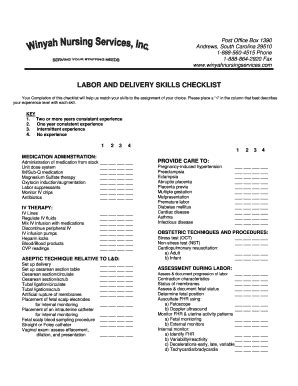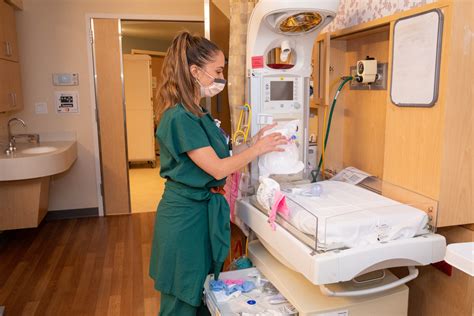Intro
Unlock the world of Labor and Delivery nursing with our comprehensive guide. Discover the roles and responsibilities of a Labor and Delivery RN, including prenatal care, childbirth education, and postpartum support. Learn about the skills and qualifications required, salary expectations, and growth opportunities in this rewarding field of maternal-child nursing.
As a crucial part of the healthcare team, Labor and Delivery (L&D) nurses play a vital role in ensuring the safe and successful delivery of newborns. These specialized nurses work closely with obstetricians, midwives, and other medical professionals to provide high-quality care to expectant mothers and their families. In this comprehensive guide, we will delve into the world of Labor and Delivery nursing, exploring the responsibilities, skills, and education required to excel in this rewarding career.

What is Labor and Delivery Nursing?
Labor and Delivery nursing is a specialized field of nursing that focuses on providing care to women during the antepartum, intrapartum, and postpartum periods. L&D nurses work in hospitals, birthing centers, and other healthcare facilities, where they provide emotional support, education, and medical care to expectant mothers and their families.
Responsibilities of a Labor and Delivery Nurse
The responsibilities of a Labor and Delivery nurse are diverse and demanding. Some of the key responsibilities include:
- Assessing and monitoring the physical and emotional well-being of expectant mothers and their fetuses
- Providing emotional support and education to expectant mothers and their families
- Administering medications and treatments as prescribed by physicians
- Assisting with deliveries, including vaginal and cesarean sections
- Providing postpartum care to new mothers and their babies
- Collaborating with other healthcare professionals to ensure seamless care
Skills and Qualities Required for Labor and Delivery Nursing
To excel as a Labor and Delivery nurse, you will need to possess certain skills and qualities, including:
- Strong communication and interpersonal skills
- Ability to work well under pressure and make quick decisions
- Compassion and empathy for expectant mothers and their families
- Strong assessment and critical thinking skills
- Ability to work effectively in a team environment
- Knowledge of fetal monitoring and labor support techniques

Education and Certification Requirements
To become a Labor and Delivery nurse, you will need to complete the following education and certification requirements:
- Earn an Associate's or Bachelor's degree in nursing from an accredited nursing program
- Obtain a Registered Nurse (RN) license in the state where you plan to practice
- Gain experience in Labor and Delivery nursing through a residency program or fellowship
- Obtain certification as a Labor and Delivery nurse through the National Certification Corporation (NCC)
Certification Options for Labor and Delivery Nurses
There are several certification options available for Labor and Delivery nurses, including:
- RNC-OB (Registered Nurse Certified in Obstetrics)
- RNC-MNN (Registered Nurse Certified in Maternal Newborn Nursing)
- C-EFM (Certified in Electronic Fetal Monitoring)
Specialized Roles in Labor and Delivery Nursing
There are several specialized roles in Labor and Delivery nursing, including:
- Labor and Delivery nurse educator
- Labor and Delivery nurse researcher
- Labor and Delivery nurse practitioner
- Certified nurse midwife (CNM)

Challenges and Rewards of Labor and Delivery Nursing
Labor and Delivery nursing can be a challenging and rewarding career. Some of the challenges include:
- High-stress work environment
- Emotional demands of working with expectant mothers and their families
- Physical demands of working long hours and lifting heavy equipment
However, the rewards of Labor and Delivery nursing far outweigh the challenges. Some of the rewards include:
- Opportunity to make a positive impact on the lives of expectant mothers and their families
- Variety and unpredictability of each shift
- Opportunity to work with a diverse range of patients and families
Conclusion
Labor and Delivery nursing is a rewarding and challenging career that requires specialized education, skills, and qualities. If you are passionate about working with expectant mothers and their families, and are willing to put in the time and effort required to excel in this field, then Labor and Delivery nursing may be the perfect career for you.

We hope this comprehensive guide has provided you with a deeper understanding of Labor and Delivery nursing. If you have any questions or comments, please feel free to share them below.
What is the average salary for a Labor and Delivery nurse?
+The average salary for a Labor and Delivery nurse varies depending on location, experience, and employer. However, according to the Bureau of Labor Statistics, the median annual salary for registered nurses in the United States is around $76,840.
What are the most common certifications for Labor and Delivery nurses?
+The most common certifications for Labor and Delivery nurses are RNC-OB (Registered Nurse Certified in Obstetrics) and RNC-MNN (Registered Nurse Certified in Maternal Newborn Nursing).
What are the biggest challenges facing Labor and Delivery nurses today?
+Some of the biggest challenges facing Labor and Delivery nurses today include staffing shortages, high-stress work environments, and the emotional demands of working with expectant mothers and their families.
